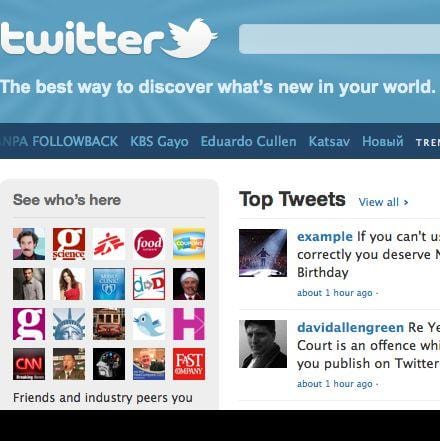The greatest soldiers are time and patience. —Leo Tolstoy in “War and Peace”
As our country heads into 2011, those words may be more relevant to the leadership of this nation than ever before. In the face of the 24/7 news cycle, leadership must see beyond winning the daily headline race and focus on the long term. But the media of over-saturation has made it more difficult than ever to lead with an eye toward long-range building for the future.
I do understand the problems facing members of the media. The media in this country are a for-profit enterprise. The difference between success and failure is razor thin. The pressure is on to get ratings or views to up the ad rates and ultimately the bottom line.
The demand for real-time news has exploded in my lifetime. I’m old enough to remember when we had to wait until Monday afternoon’s paper to see who won the late Saturday-night college football games.
You had to wait until the network news at 6 every night because there was no CNN, Headline News, Fox News, CNBC, Bloomberg News or MSNBC to deliver the news.
In the last decade or so there’s been exponential growth in the number of outlets that deliver news or commentary. All are looking for an edge to help them rise above the din of over-coverage. The immediacy of our news cycle has created immediate reactions to every event—long before the facts of the event become fully known.
As a career member of the media once told me, it is “better to be first than right.” That concept leaves little time for fact checking or perspective. It doesn’t allow time for research that challenges the latest rumor: assumptions or perceptions that are often mistakenly accepted as fact.
In this environment only the strongest can truly lead—only those willing to utilize what Tolstoy called the greatest soldiers: time and patience. True leaders must be willing to ride out a bad news cycle or two, ignore the criticism and soldier on toward a distant result that may not seem politically viable in the short term.
The past two weeks have taught me a valuable lesson. We live in a world where Internet and e-mail rumors can be circulated around the country and around the world in a matter of seconds with the push of a button.
That technology has been there for some time, but the burden of proof has changed.
Ten years ago the prevailing attitude was, “You can’t believe anything you read on the Internet.” The onus on proving a story was on the person who was putting the story out there. Now people cite Wikipedia as though it was fact or bolster an argument by saying, “I saw this on the Internet.”
Recent events have changed the burden of proof. The media chase rumors as though they were true until institutions prove them wrong.
What happened over the past ten years has been a rebirth of the skepticism we suffered after Watergate and Vietnam. In that period of history, society lost faith because we believed we had been deliberately misled.
Those wounds healed, but we have returned to that skeptical era. Over the past 10 years, some believe we have been misled by the government on the Iraq war and by big businesses like Enron, Goldman Sachs, Toyota, or BP. We mistrust the establishment.
The burden of proof is on “The Man.”
Internet rumors are often believed until the established institutions publicly disprove them. Even after evidence is presented some choose to carry on their beliefs.
How many times have we heard rumors about the government’s role in 9/11, or President Obama’s “secret” Muslim faith? Many believe these rumors despite being presented evidence to the contrary. Some of them even brandished Senator Obama’s Christian pastor Jeremiah Wright and now claim that the president is a Muslim. Contradicting your own rumors is apparently allowed as well.
Facts that run counter to an already-hardened belief can be conveniently ignored with a rumor that contradicts the facts.
This is where Tolstoy’s “Time and Patience” come in. It is easy to be dragged into trying to win every news cycle or responding to every rumor. That can bog down an organization or a leader who wades into the swamp of innuendo, rumor or even deceit. It can cause one to lose focus on the path toward what is ahead and what is important.
By relying on time and remaining patient, we will see each storm pass as the truth becomes known and the good of a long-range focus becomes apparent, even to the most hardened skeptic.
We face enormous challenges as a nation that will require long-term solutions that may be unpalatable in the near-term. Here’s hoping that in 2011 all sides in leadership will have the strength to rely on time and patience and deal with truth and fact as they plan for our shared future.



